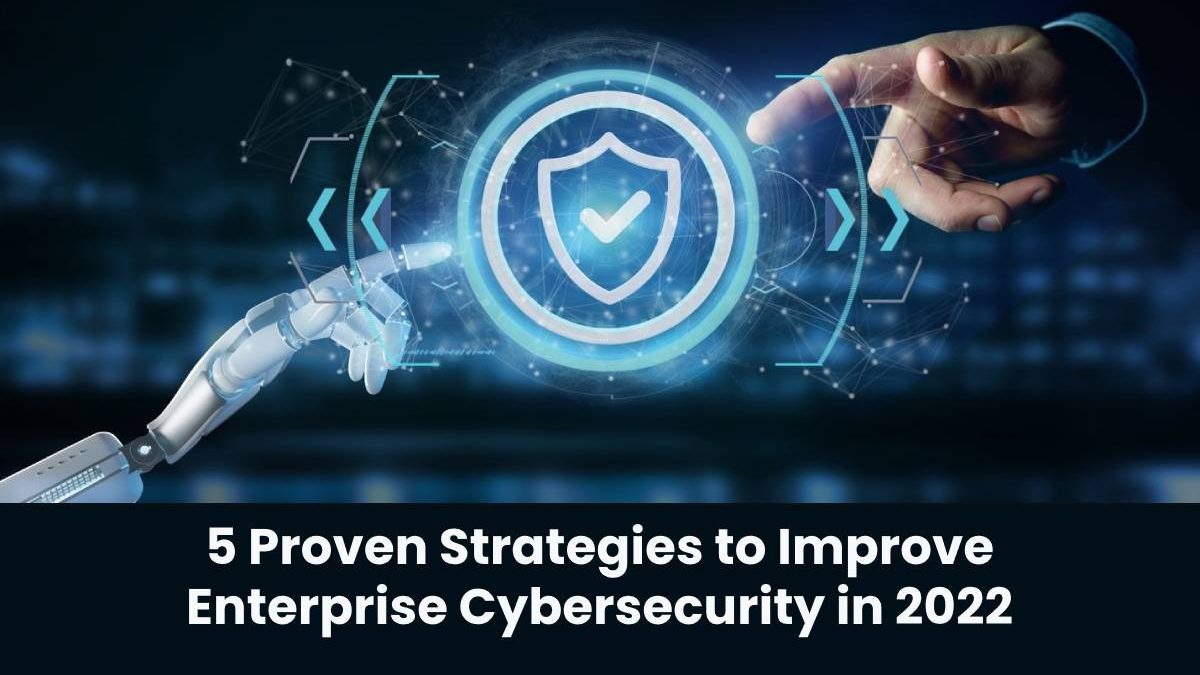Cyberattacks and data breaches are a serious problem for organizations everywhere. In recent years, such attacks have increased in both frequency and scale, giving enterprise leaders and their cybersecurity teams endless sleepless nights.
In this worrying landscape, organizations cannot be laidback about cybersecurity. If anything, every firm needs to pay more attention to strengthening their security infrastructure.
Table of Contents
Here are five effective strategies that organizations must employ to improve cybersecurity in 2022 and beyond.
1. Prioritize Password Security
Passwords enable authorized users to access their devices, accounts, websites, and applications. Unfortunately, Threat actors can easily guess weak passwords and break into enterprise systems to cause all kinds of havoc. Users sharing and reusing passwords or writing passwords in insecure locations also allow attackers to breach enterprise defenses. That’s why password security must be every company’s #1 priority.
To this end, they must follow all these best practices:
- Leverage password management platforms to simplify password creation and management
- Employ robust access management tools to protect privileged credentials
- Train employees to always use strong passwords and never share or write them down
- Implement multi-factor authentication (MFA) to minimize the chances of a breach even if a password is stolen or compromised
2. Optimize Security Information and Event Management (SIEM)
Security Information and Event Management (SIEM) solutions collect and analyze security information from across the enterprise. This information enables security teams to recognize potential security threats before they can disrupt the business.
These tools raise alerts about suspicious activities or potentially malicious behaviors on the enterprise network. Security personnel review these alerts to identify real threats and act quickly to mitigate impact.
New-age SIEM platforms can ingest data from a wide range of systems to provide advanced visibility into the IT ecosystem. They can also monitor changes to user behaviors and find connections between security events. These advanced features help to safeguard the organization from both current and emerging threats.
3. Educate Employees to Improve their Cybersecurity Hygiene
People are often the weakest link in cybersecurity because they make mistakes and have poor habits that affect the organization’s cybersecurity posture. Organizations cannot afford to ignore the role of people in cybersecurity because it takes only one careless employee, clueless vendor, or malicious ex-employee to open the door to all kinds of cyberattacks, including malware, ransomware, phishing, and social engineering.
To avoid these attacks, it’s vital to train all employees and even third parties on cybersecurity best practices. A comprehensive and up-to-date training program improves their cybersecurity knowledge. Ideally, the program would be hands-on with simulations and other learning tools that show learners exactly how they can help protect the company.
4. Conduct Regular Cybersecurity Assessments
Cybersecurity risk assessments can help uncover new threats and vulnerabilities and shine a light on the organization’s preparedness in the face of these potential issues. Security teams can then use these insights to implement the necessary risk mitigation, incident response, and data recovery controls.
Of course, it’s not enough to simply conduct an assessment. It must be followed by appropriate action to protect the company’s valuable information and reputation, such as:
- Software and operating systems patching
- Deployment of multi-layered security
- Mandating VPN connections for remote users
- Retiring unused devices or software
- Data encryption and backup
- Disaster recovery planning
5. Invest in Network Detection and Response (NDR) Technology
Network Detection and Response (NDR) tools like NovaCommand are also crucial to protect organizations from modern cybersecurity threats. These solutions leverage advanced non-signature-based analytical techniques like behavioral analytics and machine learning to collect and analyze telemetry from all kinds of network devices.
This vast dataset allows them to create a baseline of “normal” network behavior. They then compare traffic patterns to the baseline to detect suspicious or malicious traffic that other security tools often miss.
NDR tools generate instant alerts, allowing security teams to respond quickly to a potential threat or security incident. They also get advanced visibility into the entire network so they can quickly identify, triage, and mitigate threats before they can cause too much damage.
NovaCommand Knows Enterprise Cybersecurity
Learn how NovaCommand can help you detect threats faster and strengthen your cybersecurity defenses. Click here for a free demo.
Related posts
Sidebar
Recent Posts
The Best Forex Brokers for Beginners
Since COVID-19 first popped up, interest in the forex market has increased dramatically. Knowing how to get involved with minimal…
Maximizing Success: The Symbiosis of Dedicated Software Development Teams and Product Design Services
The Symbiosis of Dedicated Software Development Teams and Product Design Services In the rapidly evolving landscape of technology, businesses aiming…



